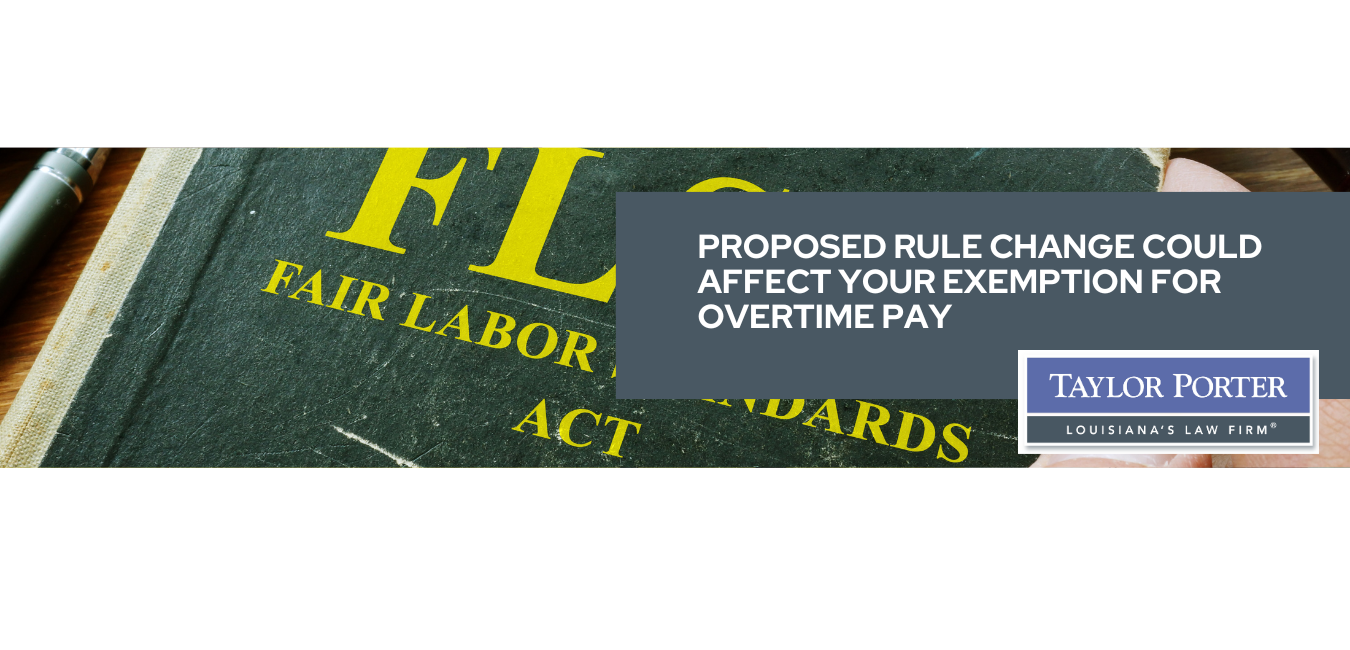Prohibited Immigration-Based Employment Practices Under IRCA
By Katia Desrouleaux Bowman
Partner, Taylor Porter
katia.bowman@taylorporter.com
 The Employment Eligibility Verification Form or, Form I-9 is the tool employers are required to use to verify the identity and work authorization of every employee (with some rare exceptions), regardless of citizenship. The law that requires such verification is the Immigration Reform and Control Act of 1986 (IRCA), whose purpose is to thwart illegal immigration to the United States and the employment of unauthorized workers by U.S. employers. As a general rule, employers must timely complete and retain the Form I-9 for each employee, including U.S. citizens, hired on or after November 6, 1986.
The Employment Eligibility Verification Form or, Form I-9 is the tool employers are required to use to verify the identity and work authorization of every employee (with some rare exceptions), regardless of citizenship. The law that requires such verification is the Immigration Reform and Control Act of 1986 (IRCA), whose purpose is to thwart illegal immigration to the United States and the employment of unauthorized workers by U.S. employers. As a general rule, employers must timely complete and retain the Form I-9 for each employee, including U.S. citizens, hired on or after November 6, 1986.
Employers should heed the intricacies of the I-9 process and implement necessary measures to both attain and maintain compliance.
The following are prohibited Immigration-Based Employment Practices Under IRCA:
- Hiring employees without verifying identity and employment authorization on Form I-9;
- Knowingly hiring (or recruiting for a fee, or referring for a fee) or continuing to employ foreign workers who are unauthorized to work in the U.S.;
- Discriminating against individuals on the basis of national origin, citizenship or Immigration status;
- Requesting more or different documents than are required to verify employment eligibility, rejecting reasonably genuine-looking documents, or specifying certain documents over others; and
- Retaliating against individuals because they: file charges with the Department of Justice’s Immigrant and Employee Rights Section (IER); cooperate with an IER investigation; contest action that may constitute unfair documentary practices or discrimination based on citizenship or immigration status, or national origin; or assert their rights under the Immigration and Naturalization Act’s (INA) anti-discrimination provision.
About Katia Bowman: Katia Bowman is a Taylor Porter partner who practices primarily civil and appellate litigation. She has defended the interests of public and private clients in personal injury, insurance defense, contract disputes, public utilities, unfair trade practice, civil rights, education, retaliation, defamation, wrongful termination, discrimination, and general tort matters. In her employment-based immigration law practice, Katia advises U.S. employers regarding compliance with the employment eligibility verification process (Form I-9 process). She also advises employers of foreign workers on the employment-based visa petition process (EB visa categories). Katia assists not only U.S. employers, but also foreign workers and students desiring to enter the U.S. workforce legally, in connection with the nonimmigrant worker visa process (including H visas). A native of Haiti, Katia herself came to the United States on a student visa (F-1). Her transition of status from F-1 to legal permanent resident and, ultimately, naturalized citizen uniquely qualifies her to help U.S. companies and foreign workers and students navigate the complex and often lengthy immigration process. Driven by her own experience and passion to facilitate and empower the employment of foreign labor in the United States within the guidelines provided by law, Katia proudly devotes her career to assisting American companies and foreign workers with their immigration needs. Katia is a member of the American Immigration Lawyers Association (AILA). Katia serves as the chair of the Taylor Porter Diversity Committee.
This website is for general information purposes only. Information posted is not intended to be legal advice. For more information, please see our Disclaimer message.
See how we can help. Contact us today
8th Floor • 450 Laurel Street • Baton Rouge, LA 70801 • 225-387-3221
- Disclaimer
- © Taylor, Porter, Brooks & Phillips L.L.P. All rights reserved.






